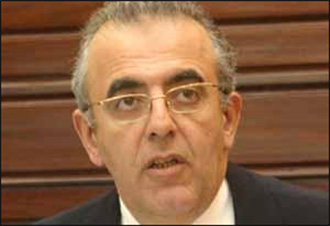The Lebanese Ministry of Health announced that at least 182 people, including women, children, and paramedics, were killed and 727 others injured due to Israeli raids on southern Lebanon on Monday.
The spokesperson for the Israeli occupation army, Daniel Hagari, said on Monday, that they prepared to launch raids on the Bekaa Valley region in eastern Lebanon, calling on residents to “stay away from homes where weapons were hidden.”
Hagari claimed that the occupation army would attack targets affiliated with Hezbollah in the Bekaa Valley after carrying out more than 300 raids in southern Lebanon.
The spokesperson said that the Israeli army’s attack on Lebanon was a “preemptive strike” after monitoring Hezbollah movements to target Israel. The raids also targeted the areas surrounding the Shaara, Harbata and Hermel regions, and the towns of Shamstar, Taria and Boday in eastern Lebanon. Yedioth Ahronoth reported that the Israeli army attacked 400 targets in Lebanon.
Also on Monday, Lebanese media reported that citizens in the south, the Bekaa, Beirut, and the southern suburbs received messages on their cell phones from the Israeli army, which read: “If you are in a building with Hezbollah weapons, stay away from the village until further notice.”
The occupation army breached landlines, telling many Lebanese to stay away from anything related to Hezbollah, otherwise their lives would be in danger.
Explosions were heard in the city of Haifa and sirens sounded in the southern part of the city, according to Yedioth Ahronoth. Sirens also sounded in Acre, the Carmel, and the central Galilee after a large barrage of rockets was launched from Lebanon.
Israeli TV Channel 12 said that a rocket fired from Lebanon fell on a building in Kiryat Tivon in northern Israel. About 30 rockets were fired from Lebanon in the latest salvo, according to Israeli Army Radio.
Hezbollah announced that it had fired rockets at the reserve headquarters of the Israeli army’s northern corps, Galilee Division ReserveBase and its stores at the Amiad base. It also bombed the Rafael military industries complexes in the Zevulun area north of Haifa with dozens of rockets.
Meanwhile, Egypt’s Foreign Minister Badr Abdelatty met with his Lebanese counterpart, Abdallah Bou Habib, on the sidelines of the 79th session of the United Nations General Assembly. The two ministers discussed the grave developments in the Middle East, particularly the ongoing Israeli aggression against Lebanon and the continuing war on the Gaza Strip.
The ministers condemned the aggression against Lebanese territory and called for respect for Lebanon’s sovereignty and territorial integrity. Abdelatty emphasized that any threat to Lebanon’s security would threaten the entire region. Minister Bou Habib expressed his gratitude for Egypt’s unwavering support for Lebanon and its government in the face of Israeli aggression and threats of a ground invasion.
Both ministers agreed on the urgent need to halt the ongoing Israeli aggression and called upon influential actors to play their role in achieving this. They stressed the importance of preventing the escalation of the conflict and its transformation into a wider regional conflict. The ministers emphasized the crucial role of the international community and the United Nations in implementing General Assembly and Security Council resolutions and issuing a binding resolution from the Security Council demanding an immediate end to Israel’s aggression against both Palestinian and Lebanese territories.
The ministers underscored the importance of Israel’s adherence to its obligations under international law, international humanitarian law, and related conventions, particularly the four Geneva Conventions and their additional protocols. This would ensure the protection of civilians from the consequences of Israel’s aggression, as stipulated by international covenants.
The ministers stressed that there is no path to resolving the current crisis in the Middle East except through a comprehensive ceasefire. They called for an end to the aggression on the Gaza Strip and Lebanon, advocating for peaceful solutions to de-escalate the situation and resolve outstanding issues between Israel and Lebanon through the implementation of United Nations Security Council Resolution 1701. This would enable the return of displaced people to their homes and the resumption of the political process to achieve the two-state solution and establish a Palestinian state within the 4 June 1967 borders, with East Jerusalem as its capital.



